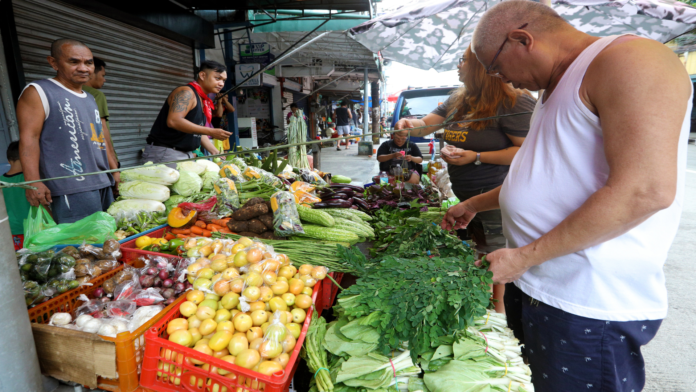The House of Representatives vowed on Friday to perform both its legislative and oversight functions to help the administration of President Ferdinand R. Marcos Jr. keep food prices down.
Speaker Martin Romualdez made the statement in reaction to the slowdown in the inflation rate to 3.3 percent in August–a 1.1-percent decrease from 4.4 percent in July.
Romualdez noted that government intervention measures, such as the direct sale of rice to the poor through Kadiwa stores and the President’s decision to significantly reduce rice import tariff, were successfully reducing inflation.
“We will help the President by approving pieces of legislation and exercising our oversight power to keep prices down, untangle bottlenecks in the distribution chain that push prices up and to expose abusive practices like hoarding and price manipulation,” Romualdez said.
He said July and August typically see higher inflation rates since it is the start of the rainy season, which makes it more challenging for producers and distributors to transport and distribute consumer products.
He, however, pointed out that the headline inflation last month was lower than the 5.3 percent recorded in August 2023.
“Managing inflation is a see-saw battle. The challenge for us is to keep it falling, or at least steady. And with the executive and legislative branches and of course, the private sector working together, I hope we succeed for the benefit of our people,” Romualdez said.
President Marcos had earlier cited the government’s move to reduce rice tariffs, which he said brought rice inflation down from 20.9 percent to 14.7 percent, and meat inflation also eased from 4.8 percent to 4 percent.
Marcos also vowed to expand the Kadiwa ng Pangulo program in the Visayas and Mindanao, as well as the rollout of the African swine fever (ASF) vaccine to ensure ample pork supply and further bring down the prices of commodities.
Likewise, the President credited steps in ensuring stable oil prices.
National Statistician Dennis Mapa said the downtrend in the overall inflation in August was primarily brought about by the slower annual increment of food and non-alcoholic beverages at 3.9 percent from 6.4 percent in July.
Food inflation, in particular, eased to 4.2 percent from 6.7 percent.
The reduction was due to the decline in rice inflation which went down to 14.7 percent from 20.9 percent in July.
It was the lowest rice inflation recorded since the 13.2 percent recorded in October 2023.
Rice inflation is expected to go down to a single-digit level this month due to base effects, Mapa said. (PNA)


